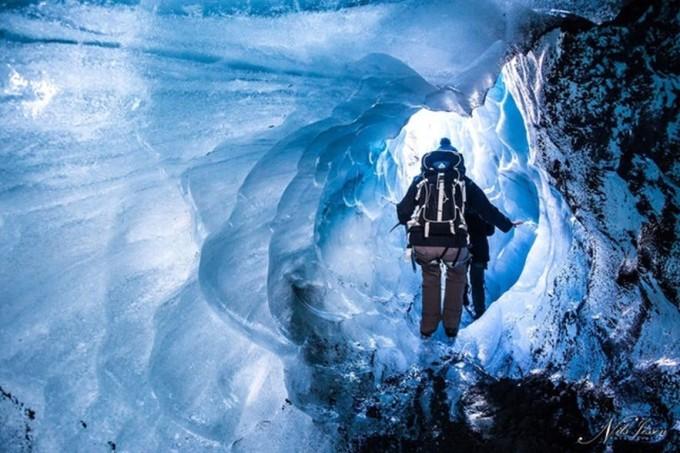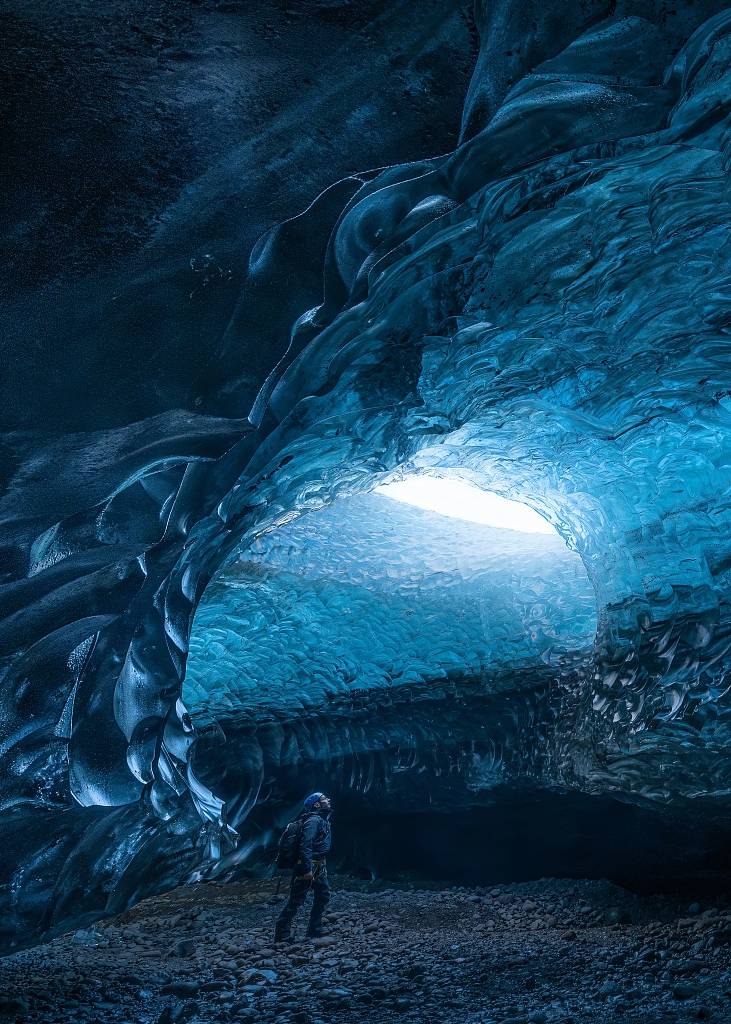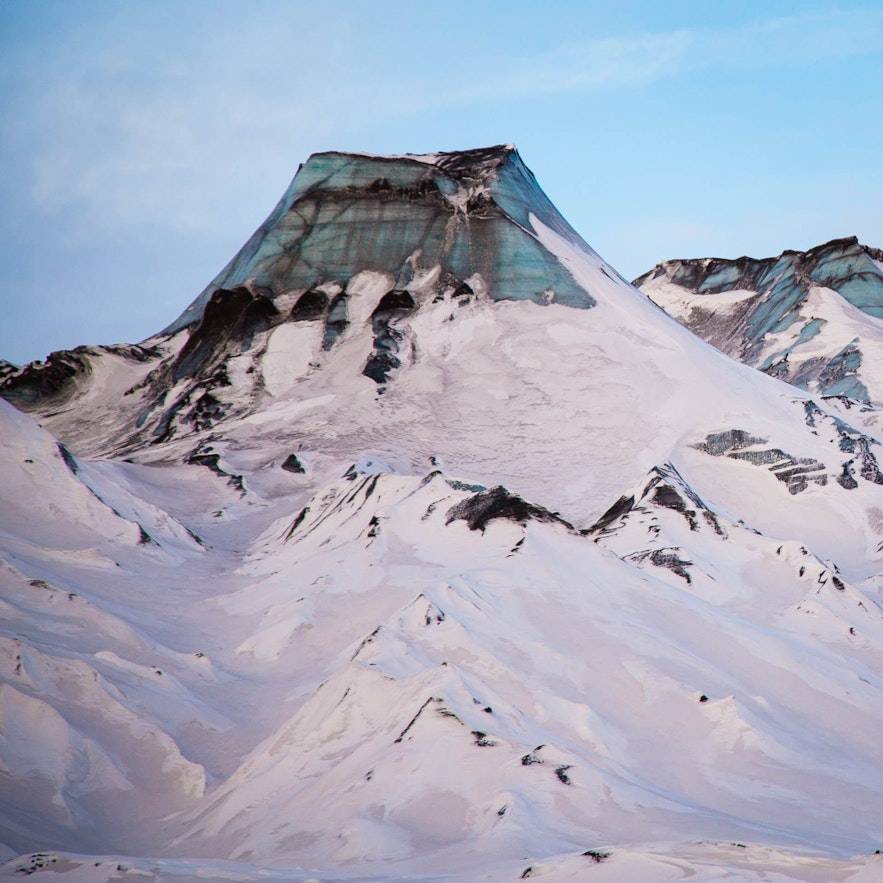Vatnajökull
Located in southeastern Iceland, Vatnajökull is one of the largest glaciers in Europe. It is vast in scale, with numerous glacier tongues at its edges, each with its own unique name. These glacier tongues extend from the mountains like tongues, flowing down the slopes and forming glacier branches. The Skaftafell area is a branch glacier of Vatnajökull, where you can participate in glacier hiking activities and experience the wonders reminiscent of the ice planet 'Mann' from the movie 'Interstellar.'
Vatnajökull is also home to many famous blue ice caves. Unlike ordinary ice caves, blue ice caves are formed under the glacier due to the influence of glacial meltwater. In summer, the meltwater cuts through the base of the glacier, creating various channels of different shapes and sizes. In the cold winter, these channels freeze into ice, forming colorful and exceptionally beautiful blue ice caves. Walking inside the blue ice caves of Vatnajökull allows one to experience the marvels and charm of nature.
Langjökull Glacier
Langjökull Glacier is the second largest glacier in Iceland, covering an area of 935 square kilometers. Its vast and magnificent white ice cap is a spectacular sight. The glacier is also a popular destination for many adventure travel activities, where visitors can experience snowmobiling, glacier hiking, skiing, and more. Each year, the beauty of Langjökull Glacier attracts countless tourists. Additionally, the Golden Circle, Iceland's most visited and popular tourist attraction, is adjacent to the glacier. The meltwater from Langjökull Glacier is the source of the Golden Falls, and the glacier river 'Hvítá' is the lifeblood of the Golden Falls. The Golden Falls is one of Iceland's largest waterfalls by volume, and visitors can appreciate the grandeur and beauty of Langjökull Glacier through the spectacular sight of the falls.
Hofsjökull Glacier
Iceland is home to many glaciers, among which Hofsjökull Glacier is the third largest and also the largest active volcano. Hofsjökull Glacier is located in the Icelandic highlands, and summer is the only season when it is accessible. Visitors must drive a four-wheel-drive vehicle and it is best to have a guide accompany them. Additionally, Hofsjökull Glacier is the source of many rivers in Iceland, including Iceland's longest river, Þjórsá. The Kjölur route, which runs between Hofsjökull Glacier and Langjökull Glacier, connects the north and south of Iceland, but this route is also only open during the summer.
Mýrdalsjökull
Located in the southern highlands of Iceland, Mýrdalsjökull is the fourth largest glacier in Iceland, covering an area of 600 square kilometers with its highest point at an elevation of about 1500 meters. The active Katla volcano is hidden beneath the glacier's peak.
Driving south along Iceland's Ring Road, you can see Mýrdalsjökull when you reach the section north of the town of Vík. Mýrdalsjökull is a popular destination for many tour groups, where visitors can try snowmobiling, ice cave exploration, or take a helicopter ride. The outlet glacier Sólheimajökull is one of the best choices for ice climbing and hiking.











